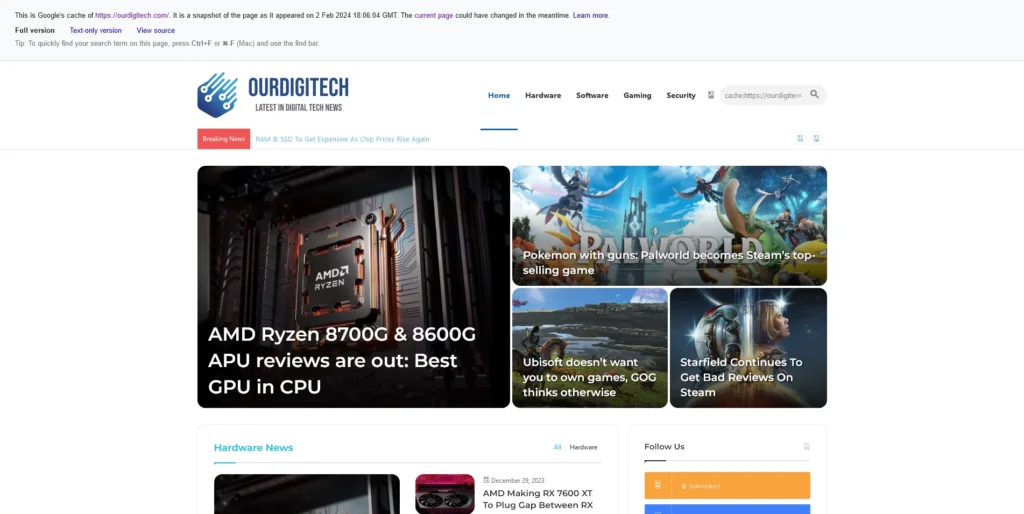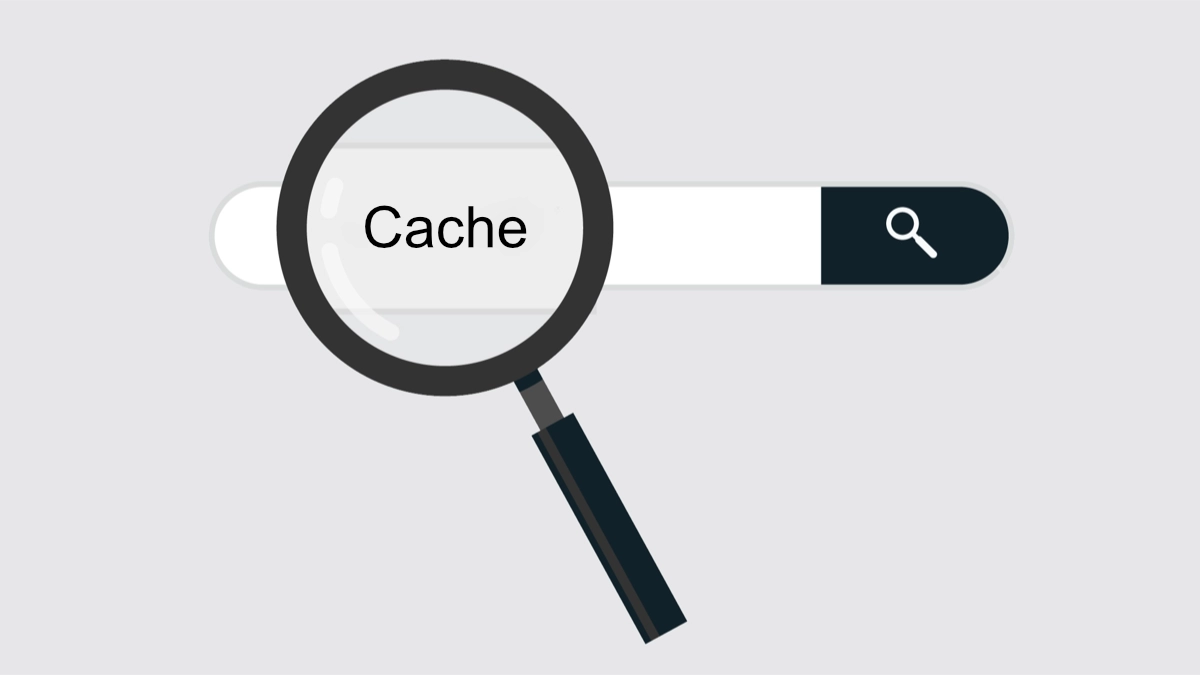Google search cache links is one of the more important features. The cache:URL is great for providing cached versions of site pages which aren’t available.
Google search is considered to be among the best search engines in the world. There’s a good reason for it, too. It’s not only quick, it has many important features too. Like Google webpage cache.
One of the more important features of Google search’s webpage cache is providing links to cached versions of sites and pages.
On an individual Google search, just click three dots and you get an option to open the cached version of the site. Another option is to open any link, type cache: before it and it starts showing a cached version of the page which, Google had cached themselves.

This feature has been very important in opening pages in case they aren’t available. Sometimes either removed or sometimes even sites becoming inaccessible. The cached pages are a great alternative to get quick information from any unavailable page.
The great thing about Google cache is that it was almost always latest. Means it cached versions of pages which are quite recent, this meant no outdated information.
This continued to work as it should. Until recently.
Google removes cached links
Several days ago, the Search Engine Roundtable reported that Google has removed the links in search results which lead to cached pages of the individual results. Today, Search Engine Land reports that Google has officially announced the retirement of Google search cache.
In a tweet on X, the official Google Search Liaison account, handled by Danny Sullivan, has replied to the question about the Google search cache’s removal:
In the tweet, he officially confirms that Google has removed cache links from the search results. Not only that, he confirms that the cache: feature too will stop working in the future. All this while he himself being unhappy of its removal.
He further reveals that he hopes that Google replaces those cache links with Internet Archive. Which has archived / cached 835 billion webpages so far.
However, the Internet Archive, started way back in 1996, has its own issues. Including copyright issues. Not to forget, it doesn’t always have the latest pages available.
However, Danny Sullivan also mentions that adding it is not in his hands and it’s in the for the ones above him to decide.
Conclusion
Google webpage cache is an extremely important feature for us. It cannot be stated enough how useful it is. While adding cache to the URL link is still available, it’s going to be removed in future too.
There are alternatives available, as mentioned above. But those alternatives are really slow and not completely reliable. Unlike Google cache, which is really quick and doesn’t break sites too often.
This is not the first time Google is removing something, though. Google announced several months ago that it’s going to delete accounts which are inactive for 2 or more years.
We really wish to see that Google reconsiders the decision to remove it.
- Melgas
-

 1
1



3175x175(CURRENT).thumb.jpg.b05acc060982b36f5891ba728e6d953c.jpg)
Recommended Comments
There are no comments to display.
Join the conversation
You can post now and register later. If you have an account, sign in now to post with your account.
Note: Your post will require moderator approval before it will be visible.